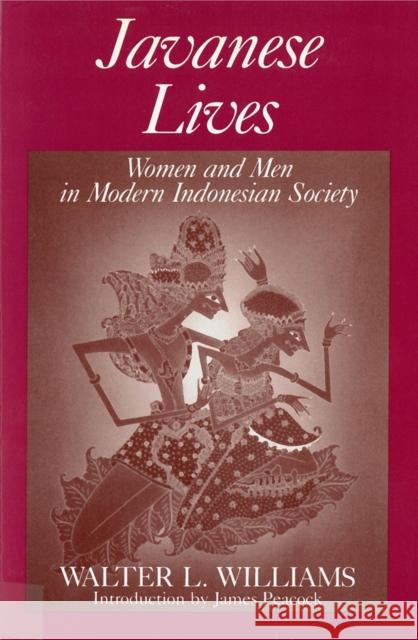Javanese Lives: Women and Men in Modern Indonesian Society » książka
Javanese Lives: Women and Men in Modern Indonesian Society
ISBN-13: 9780813516493 / Angielski / Miękka / 1991 / 264 str.
Java is the most populous island of Indonesia, the fifth largest nation in the world. Yet despite its importance, outsiders know little about the country or its people. With the help of Indonesian students and scholars, Walter L. Williams has collected and translated the life histories of twenty-seven Javanese women and men. The people interviewed tell how they have coped with rapid social and economic change, and with the transformation of their traditions. Williams has carefully selected the individuals he includes to represent a wide diversity of Java's people. We hear from fascinating women and men of various religions, from the rich and the poor, and from different ethnic backgrounds. Diversity is a constant theme, as evidenced by a poor pedicab driver who can barely scrape along, by a rich businesswoman who explains how she balances her professional domestic roles, by an educated and respected homosexual school principal, and by an illiterate mother of fourteen children. All of them present in their stories a unique Javanese approach to living. These oral histories were gathered from elderly people, who have a larger perspective on the changes they have seen in their lifetimes. The focus of the first section of the book is the way people have adapted in their daily lives massive social and economic changes. In the middle section, we hear from the Javanese who represent traditional values in the midst of change. Finally, we hear from educators and parents who tell us of their concerns for Indonesian youth and the future of the country. Walter L. Williams is an associate professor of anthropology and the study of women and men in society at the University of Southern California.











